Not Celebrating Global Handwashing Day Today? It Could Be a Sign of Your Privilege
Happy Global Handwashing Day! I’m sure this big occasion was marked on your calendar, right?
Well, in our service areas, Global Handwashing Day is actually a big occasion. Every year, countries host well-attended Global Handwashing Day events, with speeches, dancing, tree-planting, and marching in the streets.
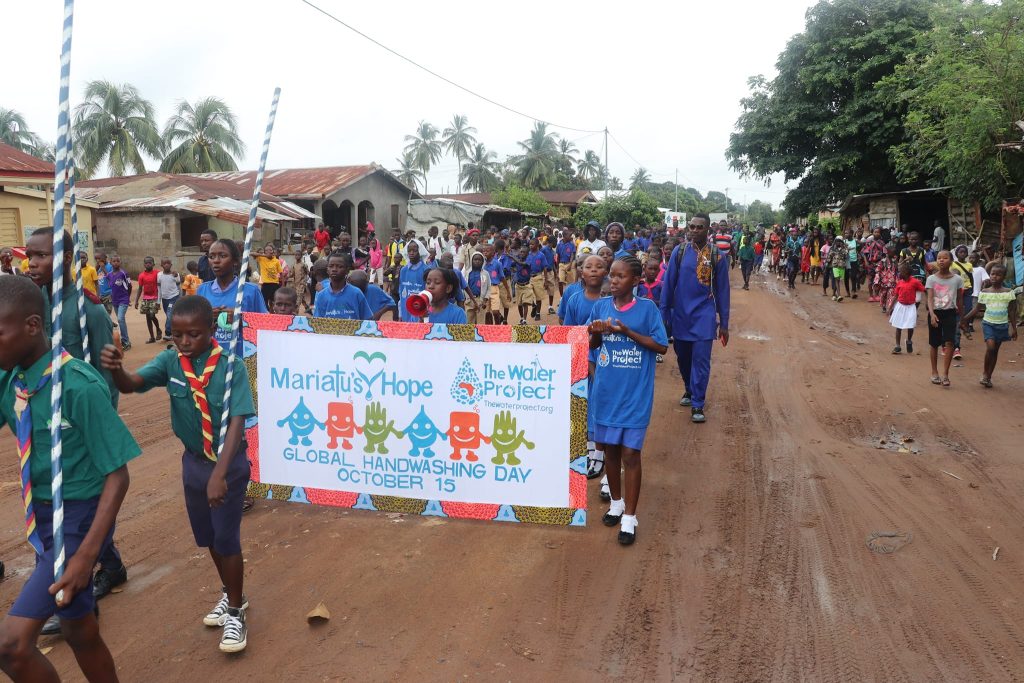
Handwashing is a much bigger deal where we work than it is in the United States. In fact, on World Hand Hygiene Day in May, the National Foundation for Infectious Diseases released survey results indicating that a good portion of American adults “forget or choose not to” wash their hands when it’s most important to do so.
The sentence that fired me up the most?
“One in five (20%) [Americans] actively choose not to wash their hands.”
— National Foundation for Infectious Diseases
I can’t say I was surprised to learn this. Often, when I use a public restroom, I hear people leaving without even stopping at the sink, or just rinsing their hands before strolling out into the store to touch every single item I would ever want to purchase. My husband shakes his head as I spray my hands and phone down with copious amounts of hand sanitizer after shopping.
Yet, when I visited Kenya in July, I found handwashing to be a regular habit. Hand sanitizer dispensers, which I often find empty or inoperable in America, were plentiful and full. Gravity-fed handwashing stations stood guard against disease. At the one tourist attraction I visited, there were sinks and soap ready both at the entrance and the exit. Before every meal, I was reminded to wash my hands.
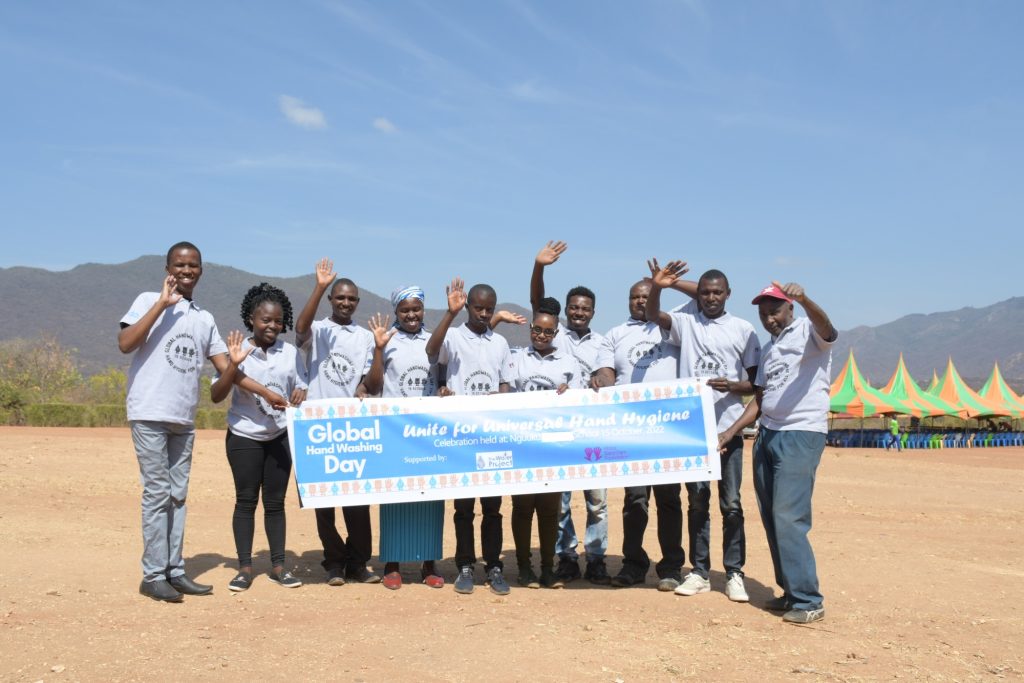
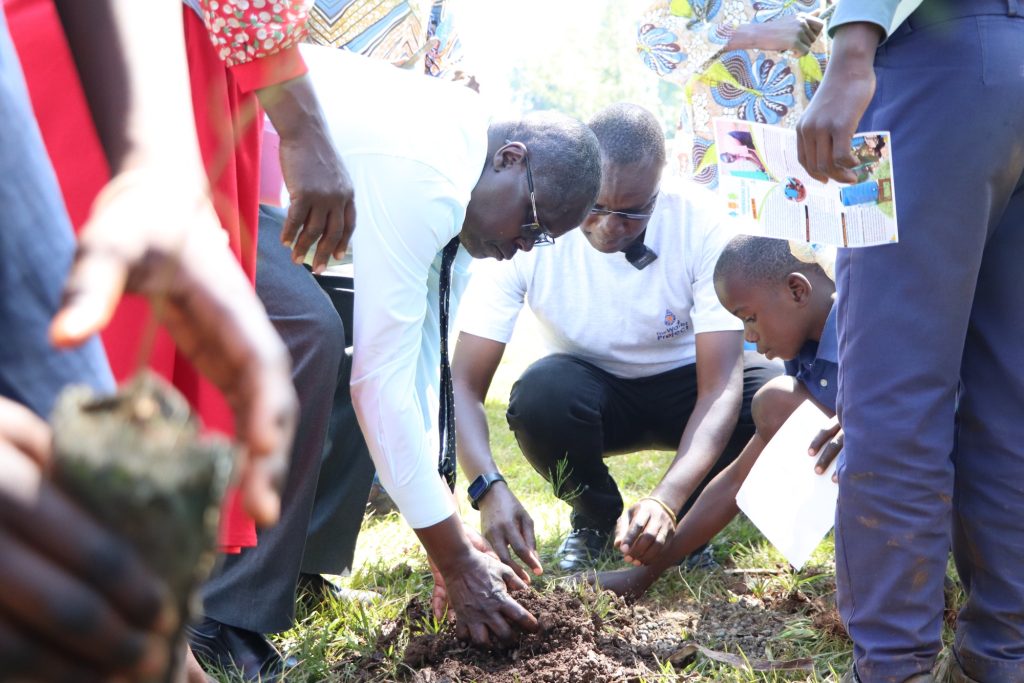
Granted, I was mostly traveling alongside my colleagues, who are professionals in the Water, Sanitation, and Hygiene (WASH) sector. They have absorbed the lessons of hand hygiene over and over, both from education and experience. But even so, the cultural difference was stark.
In the United States, piped water is everywhere, and handwashing is easy. In sub-Saharan Africa, piped water is rare, and handwashing can be hard. You would think, then, that Americans would be the ones who value and revere regular handwashing — but that’s not the case.
Why don’t Americans care about washing their hands?
When I was in Kenya, I told Monicah, the nurse-in-charge at Serem Health Center (which just recently got its own safe water source!), about this handwashing survey. The astounded look on her face is one I will never forget.
“If they have water, why don’t Americans wash their hands?” she asked.
“I wish I could tell you,” I said.
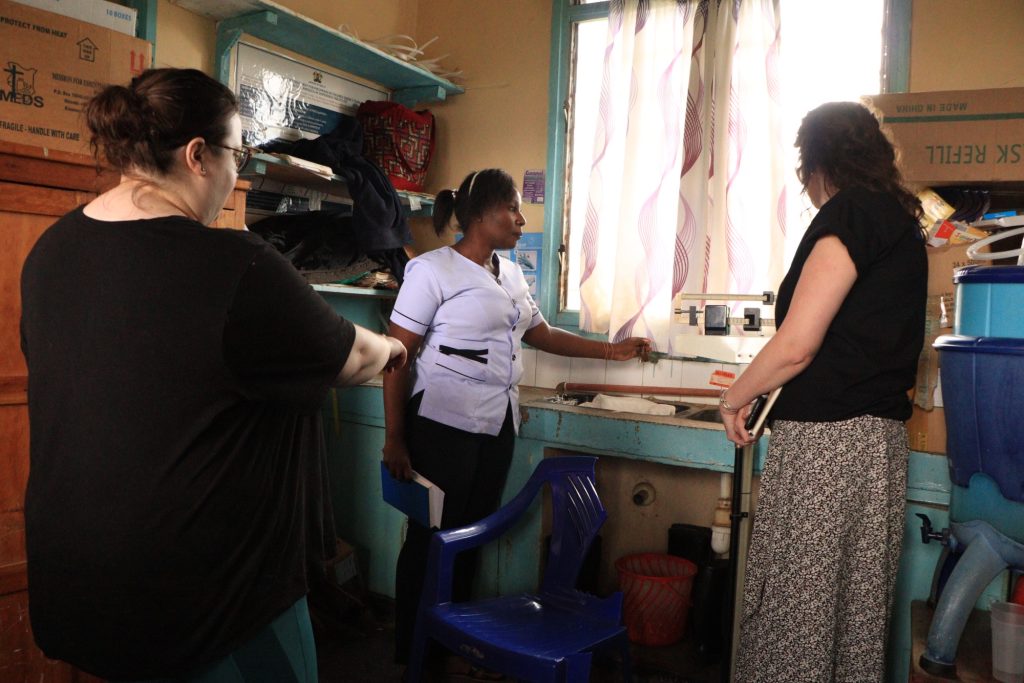
According to the National Foundation for Infectious Diseases survey, the most common reason Americans don’t wash their hands when they should is forgetting (if the participants’ self-reporting can be believed). The importance of handwashing just slips our minds.
We Americans hear the “wash your hands” refrain often, and we heard it even more often during the pandemic. But for us, the consequences of forgetting or forgoing handwashing are minimal. We might get a cough, cold, or flu. We might experience poor digestion for a few days and wonder whether it was something we ate.
Very few of us have even heard of the water-related diseases that plague people who lack safe water infrastructure. Cholera, typhoid, and dysentery don’t make headlines here because they don’t have the chance to. Americans hear “dysentery” and think about the American Civil War or Oregon Trail. In researching for this article, I even found an article written for American audiences that says dysentery “was” a disease prevalent in the 19th century. As in, past tense.
For the community members we serve in Kenya, Sierra Leone, and Uganda dysentery is not a relic of the past. It’s a disease they can only celebrate the lack of once they gain reliable safe water access.
“My second-born son fell ill in February after drinking water from this waterpoint,” said Mary Luchebeleli, who is still waiting for a safe water source in her community of Mukavakava. “He had diarrhea that contained mucus, fever, and vomiting. When I took him to the hospital, he was diagnosed with amoebic dysentery. I couldn’t understand what that meant, but the doctor explained it step by step and pointed out that the bacteria that cause it are found in contaminated water. He had to be admitted for three days because he was too dehydrated to be treated and discharged.”
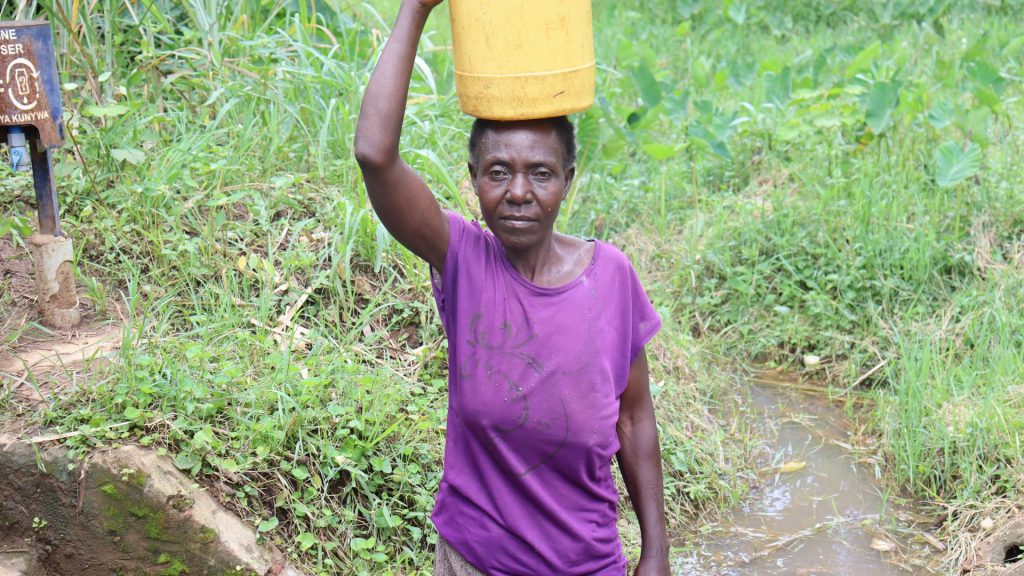
For Mary and her son, only safe water, diligent hygiene (including hand hygiene!), and safely managed sanitation can prevent future hospital visits.
Why aren’t Americans dying from water-related diseases, then?
Americans are not cleaner or more careful than those affected by waterborne and water-related diseases. Instead, our infrastructure does the hard work for us. Our water is treated, our sewage is contained, and our food systems are regulated. Even if we skip washing our hands, the germs we pass around are unlikely to find their way into our drinking water.
In much of sub-Saharan Africa, that protective layer doesn’t exist. A single gram of human feces can contain a trillion disease-spreading germs. Without reliable plumbing or sanitation, contamination spreads easily — through water, food, and shared spaces. And fecal-oral disease is just one way unwashed hands can infect us. For the people we serve, handwashing literally means life or death.
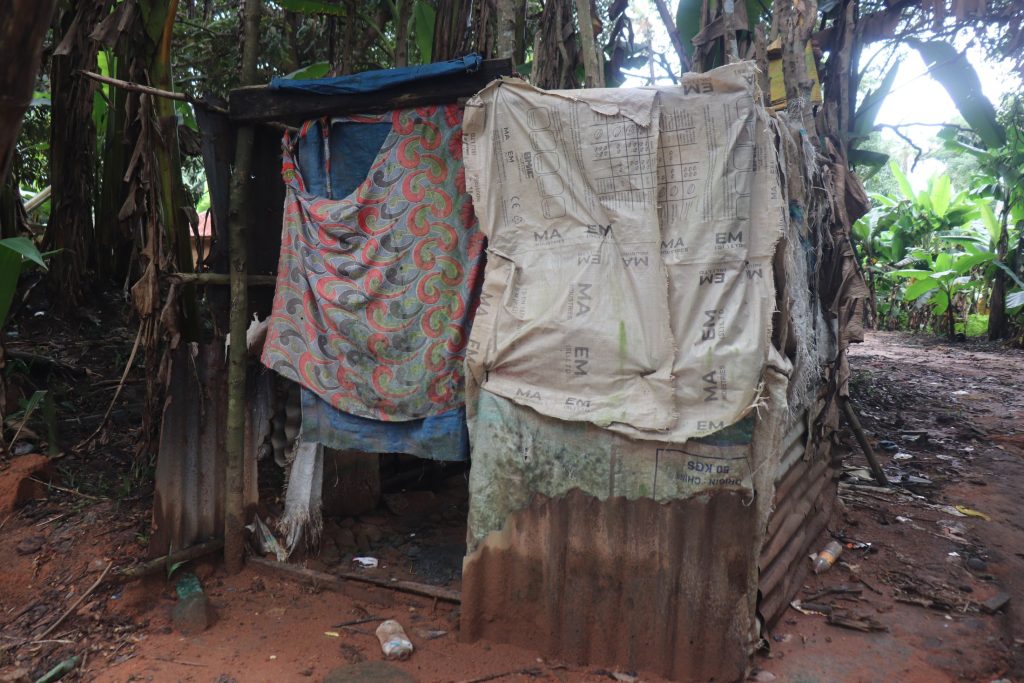
Of course, handwashing is important no matter where you go. The Center for Disease Control, on its main handwashing awareness page, tries to scare the reader into handwashing right off with a list of fecal-oral sicknesses many of us have heard of: salmonella poisoning, E. coli infection, and norovirus. No matter how clean your tap water is, everyone needs to wash their hands.
You may skip handwashing before your own meals, but the food service worker who packaged or prepared your food (probably) didn’t.
In the U.S., handwashing feels optional much of the time — something only enforced by nagging moms who would have to care for their kids if they got sick.
Why handwashing is a big deal in sub-Saharan Africa
In many of the communities where The Water Project works, handwashing becomes an act of empowerment — a signal that things are finally changing with the easy availability of safe, reliable water.
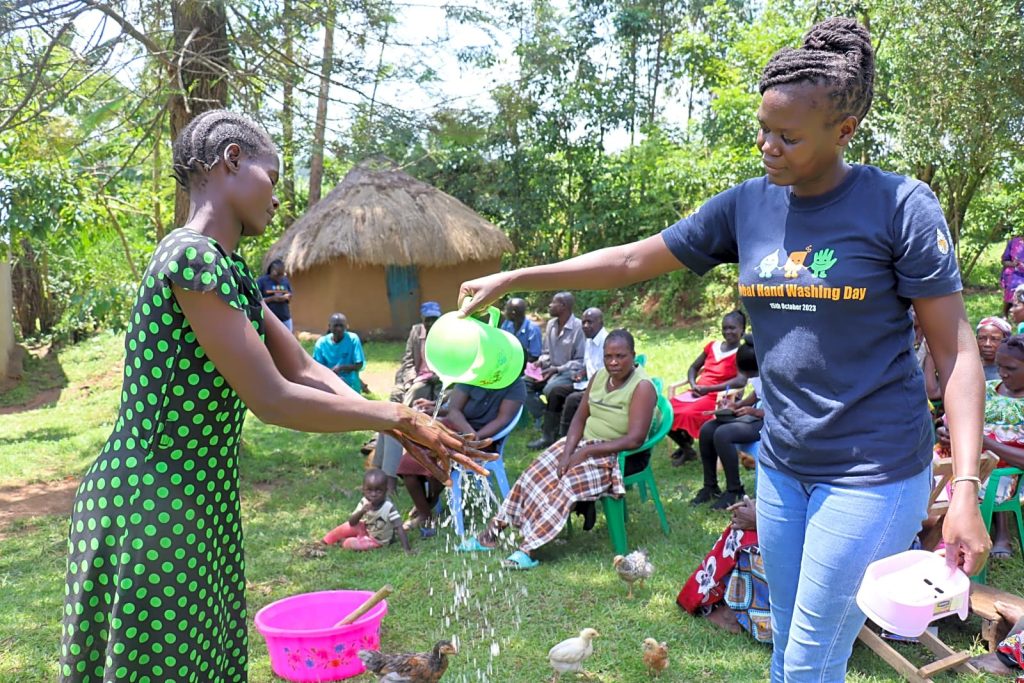
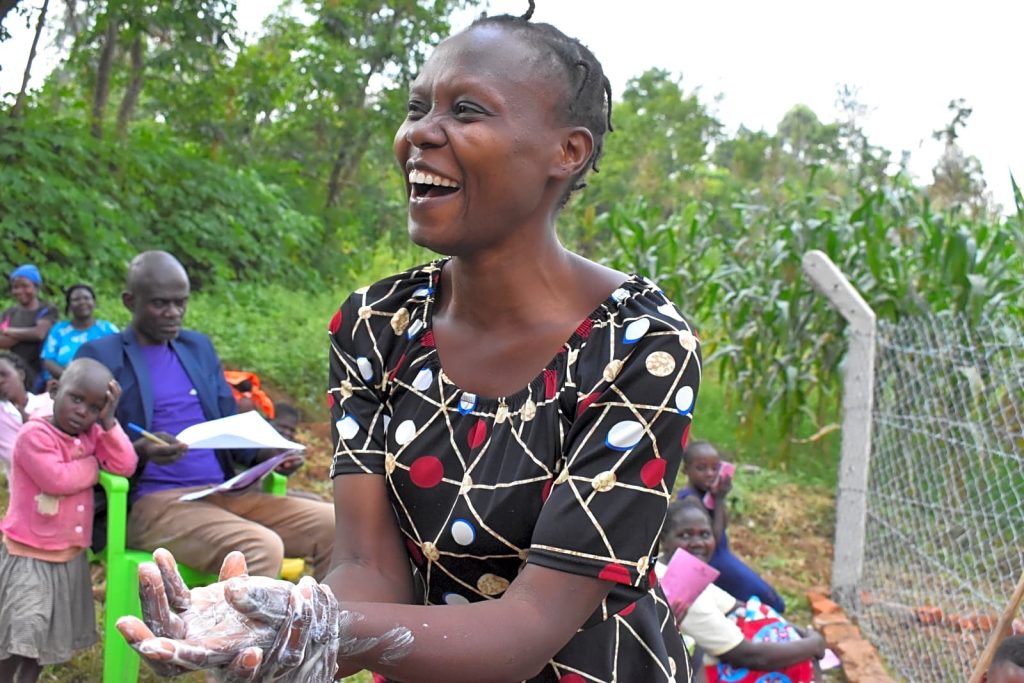
When people in Africa gather for Global Handwashing Day — with parades, songs, and speeches — they’re celebrating life-saving knowledge, and the hard-earned arrival of safe water that makes hygiene possible.
Handwashing campaigns can only go so far without the infrastructure to back them up. You can’t wash your hands without water. You can’t keep them clean if the only source is contaminated.
That’s why The Water Project builds lasting water sources that make handwashing a daily possibility. Through wells, rain tanks, and hygiene training, we’re helping communities replace vulnerability with resilience.
So maybe the message this Global Handwashing Day isn’t (just) “wash your hands more.” It’s “help make handwashing possible everywhere!”
You can join us in making that possible. Support clean water and hygiene training in sub-Saharan Africa — because everyone deserves the chance to wash their hands with confidence.
Home More Like ThisTweet